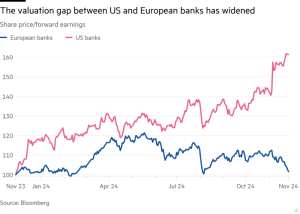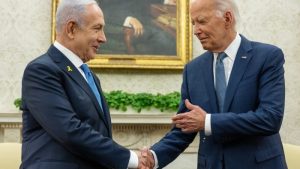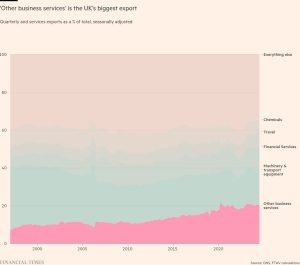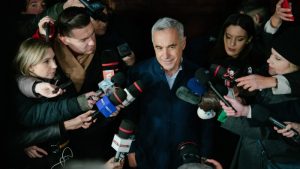Poland kicks off presidential campaign with push for World War II exhumations
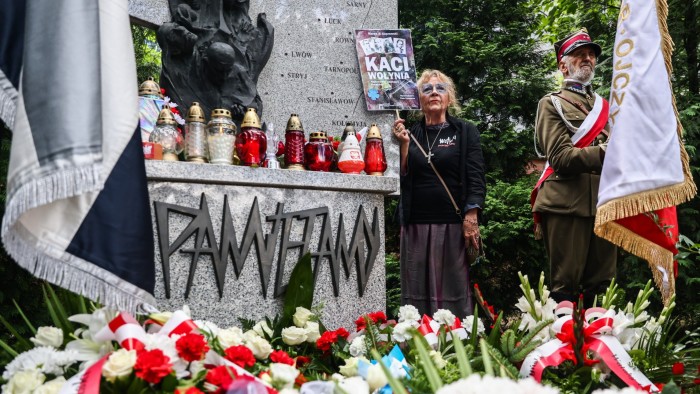
Unlock the Editor’s Digest for free
Roula Khalaf, Editor of the FT, selects her favourite stories in this weekly newsletter.
The two lead candidates in Poland’s presidential election have kicked off their campaign on the issue of exhuming Polish victims of second world war atrocities committed in Ukraine.
Warsaw mayor Rafał Trzaskowski, who is running for president in May on behalf of Prime Minister Donald Tusk’s Civic Coalition party, has offered to rebury the remains in the Polish capital. He spoke late on Tuesday after Tusk’s announcement that a preliminary deal had been reached with Kyiv on the long-standing dispute that had soured relations between the two allies.
While Poland spearheaded western military and humanitarian assistance to Ukraine following Russia’s all-out invasion in February 2022, historic grievances resurfaced in recent years against Kyiv’s opposition to allowing the bodies of ethnic Poles to be exhumed.
Trzaskowski said the capital’s Powązki Cemetery, where many famous Poles are buried, should be the final resting place for the victims of the 1940s Volhynia massacres, when about 100,000 ethnic Poles were killed in an area that is now part of north-western Ukraine, near the borders with Poland and Belarus.
But Karol Nawrocki, who was chosen on Sunday as the rightwing Law and Justice (PiS) opposition candidate, argued that Poland’s Institute of National Remembrance, which he now runs, should lead the process and handle the exhumations. Nawrocki is a historian who also previously managed a museum about the second world war in his home city of Gdańsk.
The Volhynia massacres dominate the start of a presidential campaign in which Tusk is hoping to finally unblock his reform agenda which is hobbled by President Andrzej Duda, who is serving his second and final term.
Poland’s current and previous governments have also pursued separate compensation claims against Berlin for destruction and crimes during Poland’s wartime occupation by Nazi Germany.
After a visit from Ukraine’s foreign minister Andriy Sybiha on Tuesday, Tusk said a breakthrough had been reached, with Kyiv agreeing not to block the exhumation from mass graves of Polish victims, whom Warsaw wants to identify and rebury.
“This is the key to the full reconciliation of our nations, so necessary at this dramatic moment in our common history,” Tusk said.
Sybiha said Ukrainians, like Poles, are interested in ensuring that there are no misunderstandings between the two countries. “Every family has the right to honour the memory of their ancestors with dignity,” he said.

The breakthrough comes as Ukraine is in desperate need to bring Poland fully back on its side and prevent further friction at a time when support from its most important ally, the US, is put under question by president-elect Donald Trump.
Kyiv halted the process of exhumations in 2017 to protest against the removal of a Ukrainian memorial in Poland. Kyiv has also disputed a 2016 decision by the Polish parliament to describe the massacres as genocide and has more recently been upset by warnings from Warsaw that this historical issue, if unresolved, could derail Ukraine’s push for EU membership.
Ukraine has long considered Poland’s narrative around the Volynia massacres as selective. Many Ukrainian historians argue that Ukrainian civilians were also killed in the area, by Polish resistance fighters.
The move towards reconciliation over the massacres was welcomed in Kyiv at a time when Ukraine has been pushing for Poland and other western allies to send much-needed extra equipment to help repel Russian forces.
“It was poisoning our relations and creating a huge crisis of trust which is very dangerous in the midst of large-scale war,” said Alyona Getmanchuk, director of the New Europe Center, a think-tank focused on Ukraine’s planned integration into the EU and Nato.
“It is especially important to remove this issue as the main irritator before the active phase of the presidential campaign in Poland starts and before the Polish presidency of the EU, when we will need Poland on board in terms of our accession talks in the EU.”
Poland takes over the EU’s six-month rotating presidency in January, with Tusk promising an agenda that will be mostly about bolstering the bloc’s security and defence in the face of Russia’s continued threat.
The preliminary agreement could also allow Warsaw to provide Kyiv with more fighter jets, Getmanchuk said, noting that such discussions were put on hold “because of the exhumation issue”.
#Poland #kicks #presidential #campaign #push #World #War #exhumations
